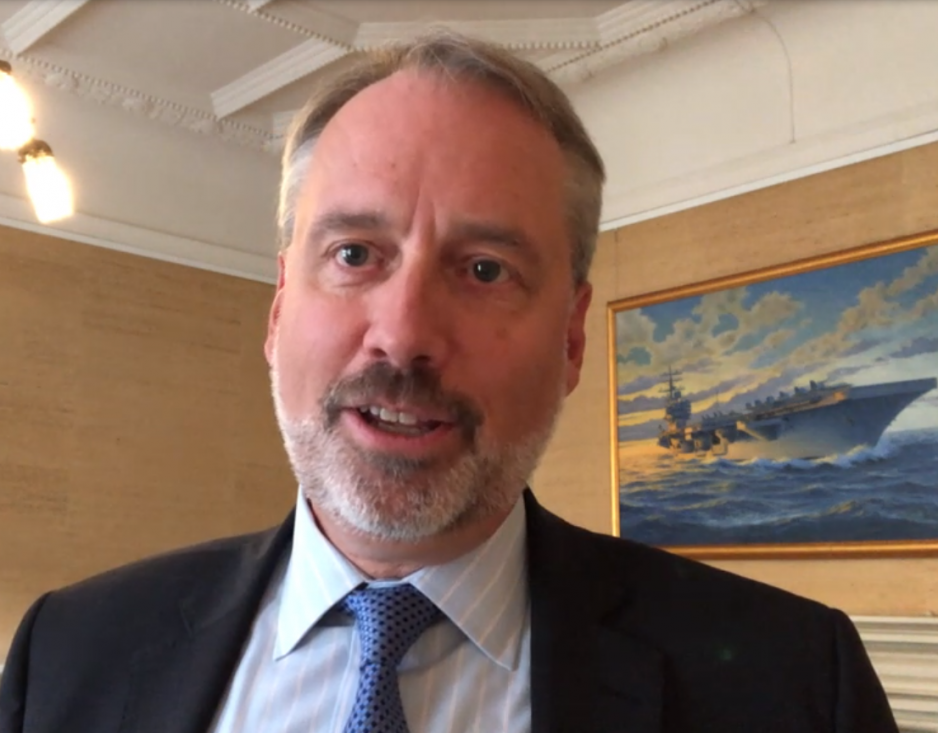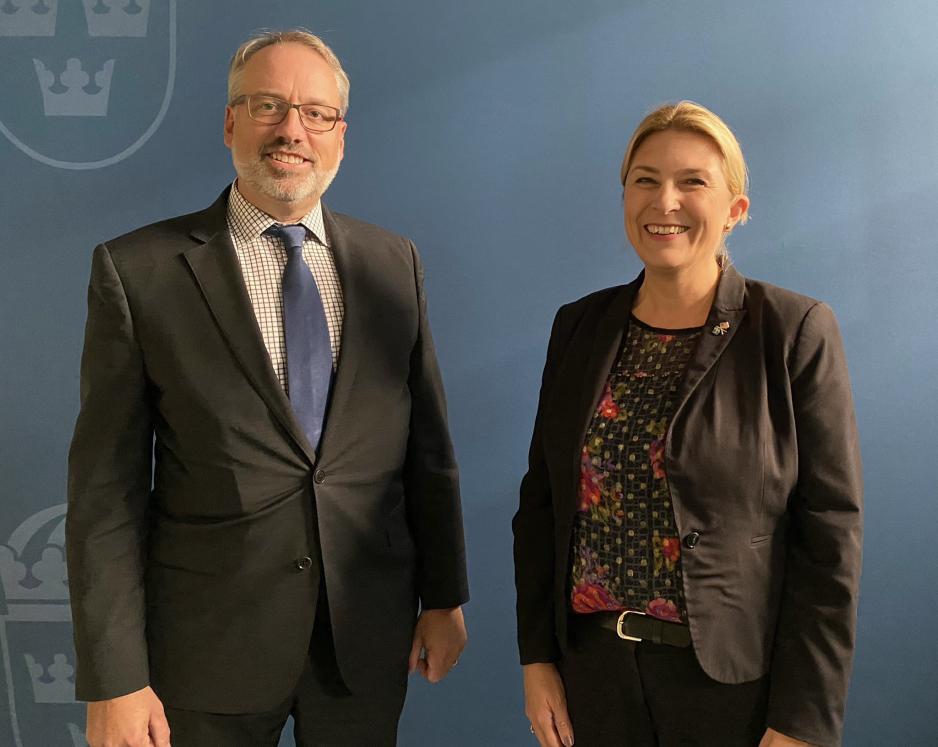USA Steps Up Diplomatic Efforts in the Arctic

In Oslo, Norway: From 22 September through 12 October, Coordinator James DeHart and the U.S. Arctic delegation travel the Nordic countries to consult with Arctic partners in the region (Photo: Screenshot).
The U.S. Department of State is developing its own diplomatic plan in the Arctic and the Navy is working on an Arctic strategy, U.S. Coordinator for the Arctic Region James DeHart says in an interview with High North News.
"There is huge interest from Washington in the Arctic region at the moment", U.S. Coordinator for the Arctic Region James DeHart tells High North News.
"I am here to consult with our close allies and partners in the region as we develop our own diplomatic plan in the coming couple of months."
In a video interview from Oslo, Norway, DeHart says the U.S. State Department is currently working on its own diplomatic plan in the Arctic.
"We want to get the views of our good friends in the region and incorporate that into our own next steps."
There is huge interest in the Arctic region at the moment.
Strategies in progress
With a reopened consulate in Nuuk, Greenland, the development of a new icebreaker fleet, as well as a brand new Arctic strategy from the U.S. Air Force, DeHart says the U.S. Navy is also working on an Arctic strategy.
"We will have our own diplomatic plan in the State Department. The Navy will issue a strategy, and I think at some point in time, we will have a White House-led strategy also for the Arctic", the Coordinator adds.
"Everybody recognizes the need for us to be more involved and more present throughout the region."
Increased U.S. presence
Over the course of the last few years, a U.S. security policy shift in the Arctic has led to increased focus on the region as an arena for strategic competition between great powers, with more U.S. presence.
Are we going to see increased U.S. presence in the High North?
"I think that you will see increased presence in general, balanced against what our close allies can do. I think together as allies and close partners we need to be sharing the burden and we all need to be contributing, and so we can work out that balance in close consultations with each other."
How do you as Coordinator balance the objective of low tension in the Arctic with security and military matters in the region?
"We need to be able to do more than one thing at the same time. We have to pursue the Arctic as a place for peaceful cooperation, and we do that by participating very actively in the Arctic Council, which is doing great work. At the same time we have to be aware of the security dimension and address those challenges in the right channels outside the Arctic Council."
"The job of the Coordinator is really to make sure that we are not out of balance and only doing one thing, but that we are doing everything that needs to be done and doing it in a way that is coherent", DeHart says.
Our diplomacy is aimed at addressing challenges, but also intended to be very balanced.
Balanced approach
DeHart further explains that the U.S. diplomacy in the Arctic is aimed at addressing challenges they see in the region.
He points to environmental changes, geopolitical challenges of a more assertive Russia and concerns about the economic involvement of China in the region.
"But our diplomacy is also intended to be very balanced. We are looking at the Arctic from a security perspective, but also from a science perspective, and invest heavily in science and Arctic research. We are also very much involved in the standards surrounding economic development in the region, that is an important area of work."
"This is what we are developing in Washington and we want to have the input from our close allies and partners", DeHart adds.

US Coordinator for the Arctic James DeHart with Swedish State Secretary Karin Wallensteen last week. (Photo: U.S. Embassy in Sweden).
Moving forward, the Coordinator says much work will be done, including through the Arctic Council, to make sure that the standards are high throughout the region.
"We want to make sure that if any actors, whether China or anybody else, are doing investment or commercial activity, that they are following environmental standards, transparent behavior, and also support to local communities in the process. That is a very important effort, so we plan for, in the future, that those concrete results will be seen."
"Our goal is to make sure that the region stays peaceful and low tension. And that there are no threats to the US homeland. That nations are continuing to cooperate in a way that they do through the Arctic Council", DeHart concludes.


